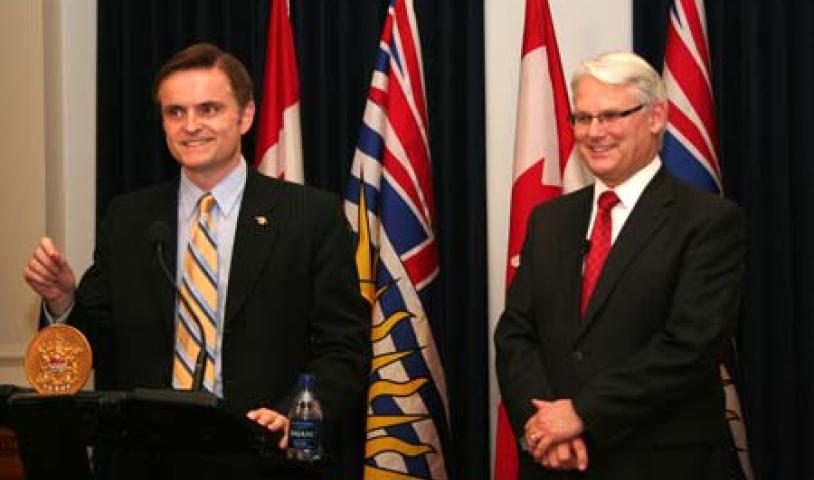B.C. government deserves a ‘gold medal in green rhetoric'
Wednesday, March 3, 2010
Praised in the past as the greenest government in Canada, British Columbia came under fire from environmentalists yesterday for a budget they say negates the impact of clean-energy initiatives by offering bigger subsidies to the oil and gas industry.
“The B.C. government deserves a gold medal in green rhetoric with this budget, but when it comes to real action on the environment they have veered far off course,” said Gwen Barlee, policy director for the Wilderness Committee.
George Heyman, executive director of the Sierra Club of B.C., said there were some welcome measures in the budget, but overall it had tipped too heavily in favour of carbon-intensive industries.
Mr. Heyman said the government's allocation of $100-million for climate action and clean-energy development, and $35-million to revive LiveSmart, a program that encourages energy efficient homes, was set back by larger incentives to resource industries.
He pointed out the budget projects $282-million in subsidies this year for the oil and gas sector; $274-million to extend power lines up Highway 37 to service coal mines, and $200-million to upgrade roads in B.C.'s northeast oil and gas patch.
“This budget gives small snacks to green initiatives compared to the full-course meals that oil, gas and mining companies will get from public coffers,” said Mr. Heyman.
Matt Horne, director of B.C. Energy Solutions for the Pembina Institute, praised the government for its new clean-energy fund, but said “in a large part when you look at the budget in balance, it's disappointing it's not moving at the scale or pace we need to hit the province's climate targets.”
He said in addition to offering significant subsidies to the oil and gas industries, the government has failed to close carbon-tax loopholes.
“British Columbia's law requires that we reduce our carbon emissions by 33 per cent by 2020 … [but] this budget doesn't do enough to help British Columbia take those next steps and drive the transition from dirty to clean energy,” said Mr. Horne.
The budget sets aside $100-million over three years to support infrastructure for cleaner transportation choices, the production of bio-fuels from wood waste, and new forms of electricity generation “including wind, solar, geothermal, tidal, wave, and run-of-river applications.”
The government also said it is moving to support carbon trading and clean technology by extending to those sectors tax breaks intended to make B.C. more attractive as an international financial centre. Details on that program weren't immediately available.





